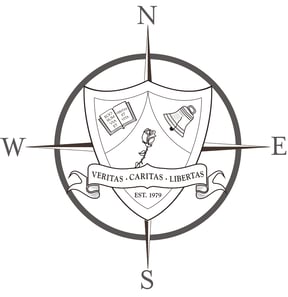In February, Montrose School hosted visiting research fellows from the Jubilee Centre for Character and Virtues in Birmingham, England. One of the researchers, Rachael Hunter, described what she learned about "What Can We Learn From Character Education in America?" We reprint it her post here with permission.
A thorough response to this question would take many more words, and hours, than a blog post. However, having just spent a few days in Boston with leading Character Education advocate Karen Bohlin, I wanted to briefly reflect on some of the more pertinent lessons that I took away from the experience. Karen is a senior scholar at Boston University and head of school at Montrose School, a private girls’ school, which seeks to embed character education into every element of school life.
At Montrose, character education is taught discretely, but it is also embedded across all subjects in the curriculum. This means that character education forms a consistent thread through the pupils’ educational experience, allowing them to see how their character development is happening in every moment of school life.
One of the benefits of a private school, and an education system without statutory national exams, is the freedom to tailor a curriculum to the needs of the students, and focus on the key virtues or values that you wish to foster. I was initially concerned that this may be at the expense of subject-specific academic rigour, but found that this was certainly not the case.
I observed a literature lesson where a discussion of the meaning of true freedom in Jane Eyre led to discussions of how our mindset can free or constrain us, regardless of the objective circumstances that we are in. I saw an Art and Science class (yes, one class combining both disciplines) where pupils discussed the struggles of the artistic process and the need to persevere through the hurdles that they had experienced in their projects.
I also had an illuminating discussion with the head of maths who discussed how she was trialling a new pedagogical approach, advocated by Stanford researcher Jo Boalin, where pupils worked in groups through open ended maths problems rather than completing individual fluency work. She noted that, while some pupils were initially resistant, they were becoming more creative, flexible and resilient mathematicians.
This curriculum, however, would be not possible without a whole staff that is committed to, and understands, the principles of character education.
Montrose places a high level of importance of the professional development of staff, deeming all staff to be “teachers and scholars.” This understanding is key to ensuring that the central messages conveyed to pupils are consistent and that staff have a deep and rich understanding of character education.
Staff attend an hour long weekly development meeting which involves engaging with contemporary research and responding in departmental groups. In addition, individual members of staff have coaching conversations with a member of the senior leadership team every week, working through any professional issues and evaluating their professional development. Finally, every year, staff have a two day residential retreat which re-focuses them on the vision of the school and enables them to reflect on current practice, away from the distractions of the everyday.
In conversations with staff, it became clear that this focus on their development has a significant impact on both their wellbeing and their practice. One teacher explained that, because she feels valued and positively challenged, she is able to give much more of herself than she was in her previous job. Another teacher said that collaboration with her colleagues across different disciplines allowed her to bring the best practices from across the school to her lessons. Valuing effective professional development, and allocating the time that it requires, seems absolutely key to successful character education and is an area that the UK sorely needs to develop.
The final element of the Montrose experience that particularly struck me was the time dedicated to reflection – a key component in character education. In the middle of the morning, students have a 30 minute reflection period where they can either attend a Catholic mass, or spend 30 minutes reading. I found this pause a great time to reflect and re-calibrate before carrying on with the day. Similarly to staff, all students have a weekly 1:1 meeting with their mentor to discuss both academic and wider concerns. Many students that I spoke to reflected on these relationships with their tutors as fundamental to their experience of school life and character development.
Finally, students come together both as a year group, and as a whole school, to reflect on issues which relate to their character development. This could include study habits, inspirational role models or responding to peer pressure. These inbuilt moments for reflection, throughout the day and week, ensure that pupils are given plenty of time to take stock of who they are becoming and how. This not only gives the girls ownership over their journey but further emphasises that it is the journey, not the destination, that counts. 





